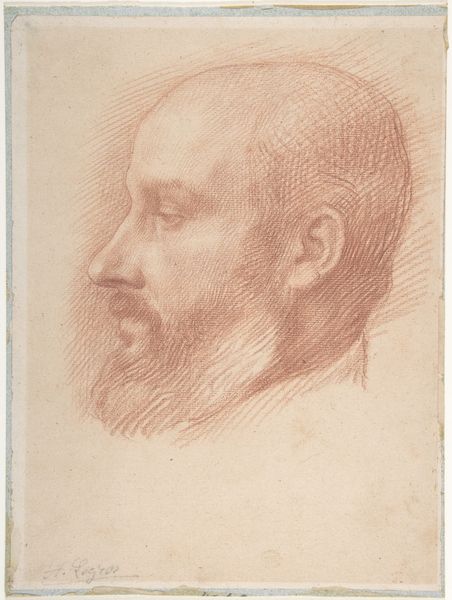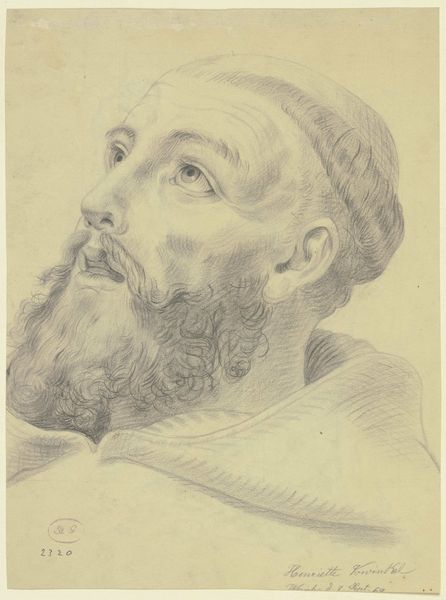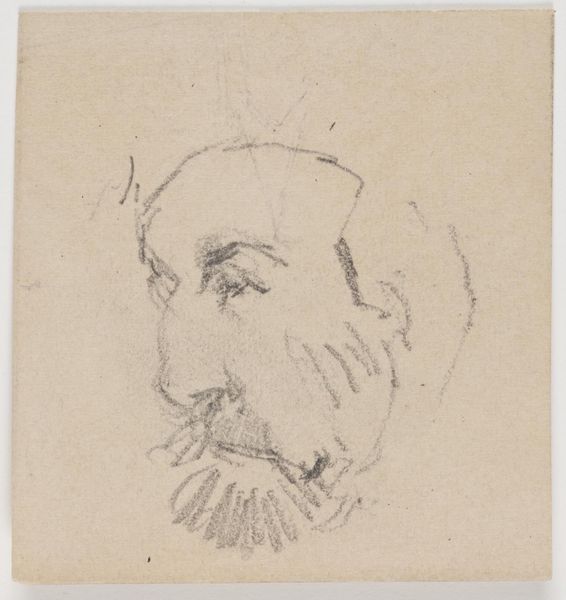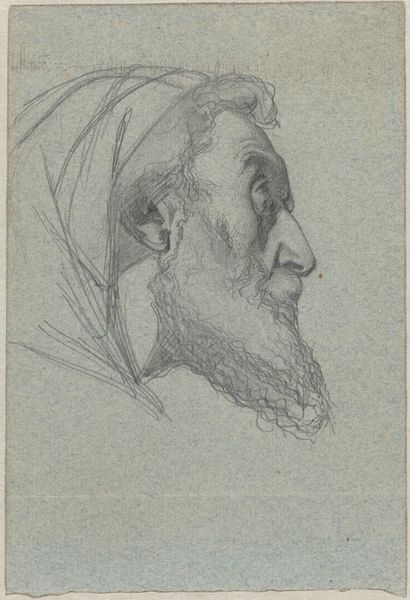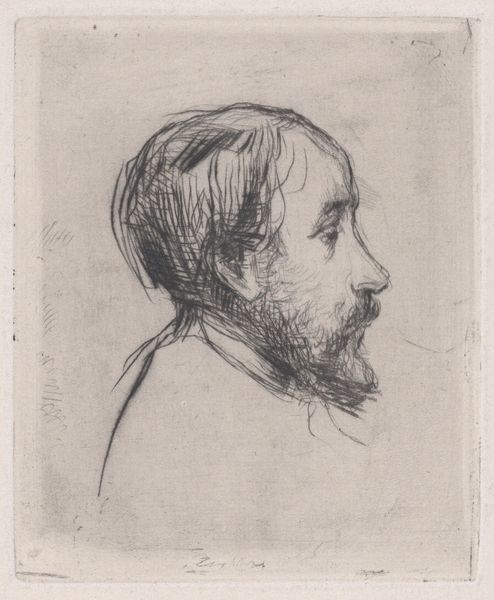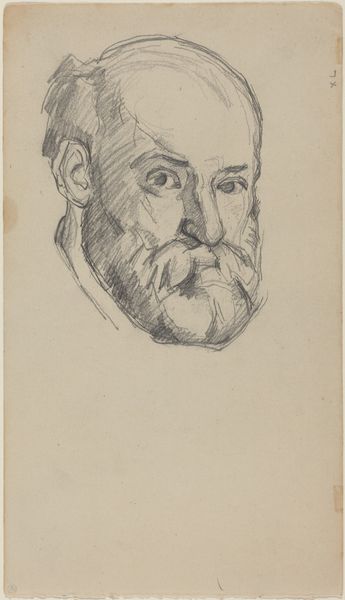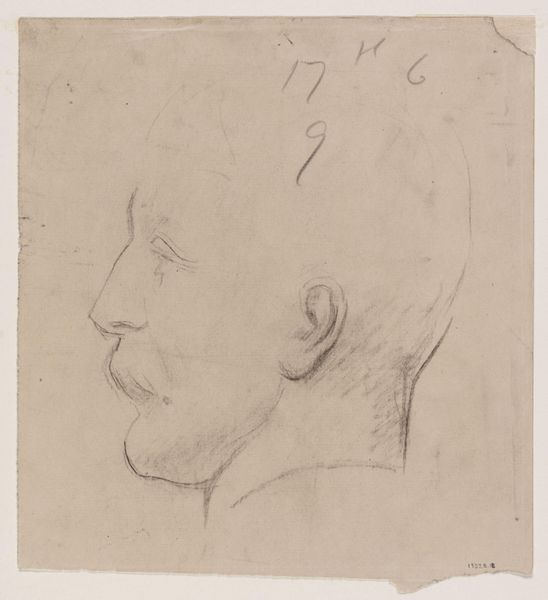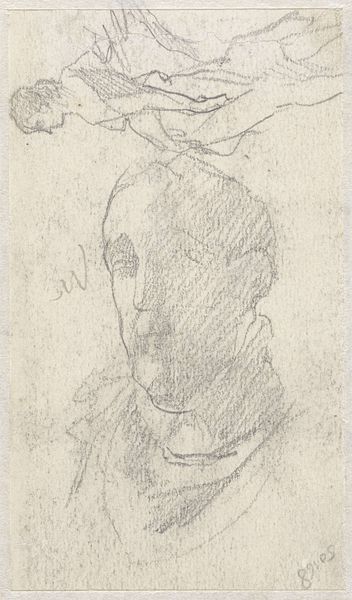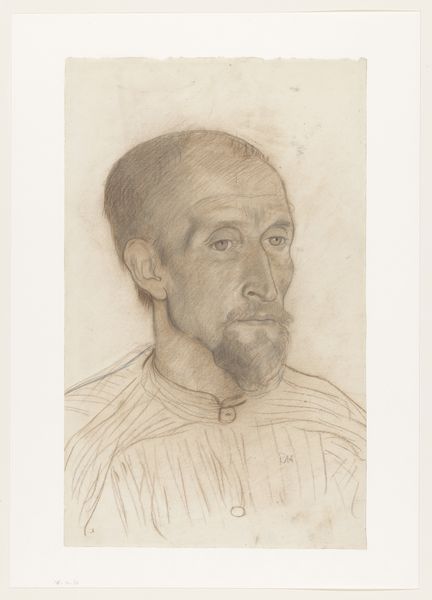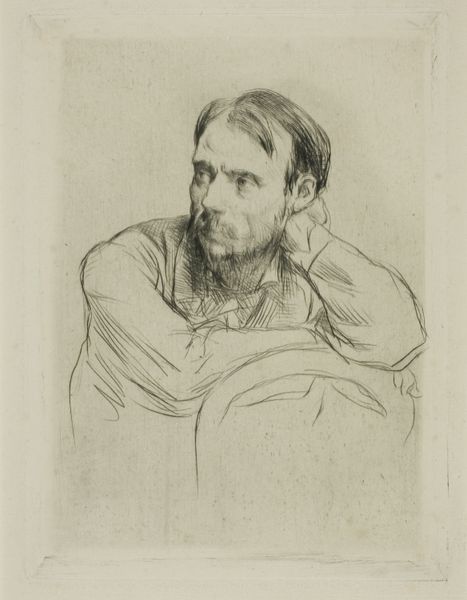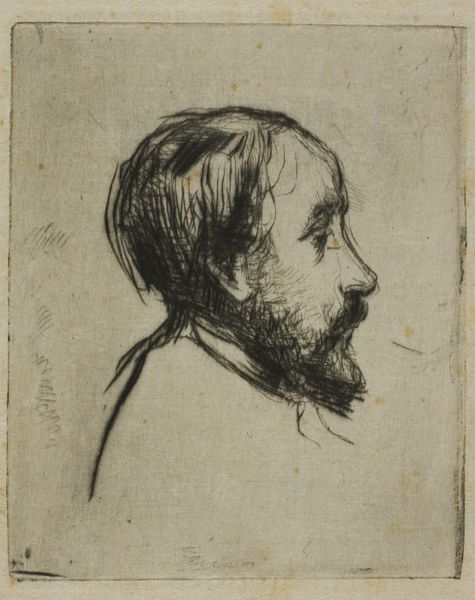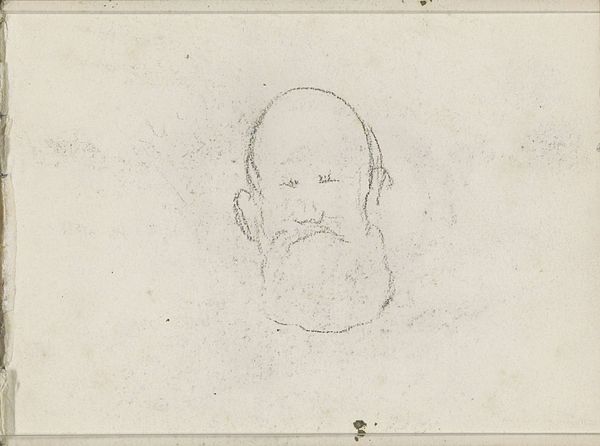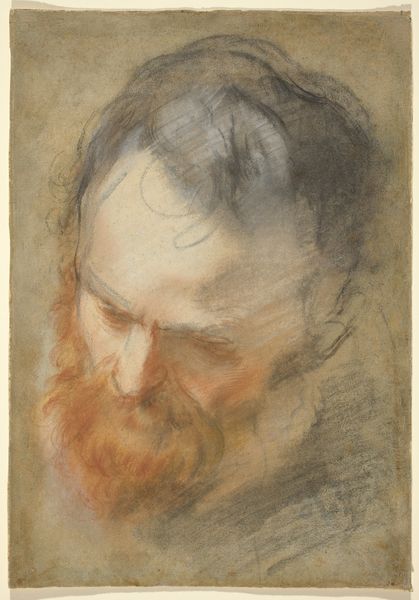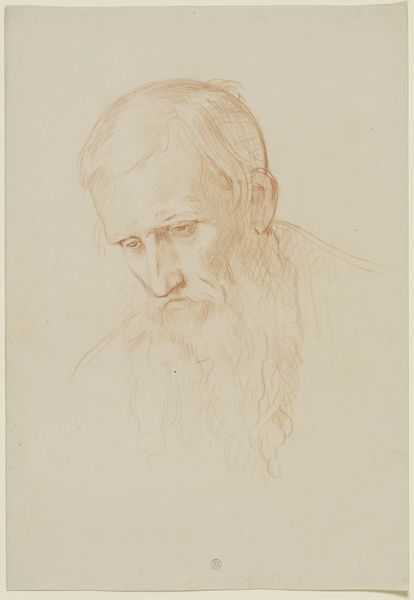
Kopfstudie eines bärtigen Mannes, Umrisslinie des Knabenkopfes der Vorderseite des Blattes im Profil nach links
0:00
0:00
drawing, paper, pencil
#
portrait
#
drawing
#
classical-realism
#
figuration
#
paper
#
pencil drawing
#
pencil
#
portrait drawing
Copyright: Public Domain
Bernhard Neher the Younger sketched this study of a bearded man, alongside the outline of a boy's head, in pencil. This drawing, housed in the Städel Museum, speaks to the institutional practices of 19th-century art academies, where the study of the human form was central to artistic training. Neher, born in Germany in 1806, would have been steeped in the conventions of academic art. The emphasis on precise draftsmanship and anatomical accuracy reflects the belief that art should be grounded in careful observation and a mastery of classical ideals. We can ask how this pedagogical approach shaped the artistic output of the time. Did it foster creativity, or did it serve to reinforce existing social hierarchies and aesthetic norms? By exploring archival materials and period texts, we can gain a deeper understanding of the social conditions that shaped the production and reception of such artworks. Ultimately, this study reminds us that art is never created in a vacuum but is always shaped by the institutions and social forces of its time.
Comments
No comments
Be the first to comment and join the conversation on the ultimate creative platform.
